AMD has new processors for commercial desktops. If you have seen our Project TinyMiniMicro series, some of the processors, the AMD Ryzen Pro 8000 series, will find their way into those systems from companies like Lenovo, HP, and Dell. Some of the other processors, the AMD Ryzen Pro 8040 series, are more often found in notebooks and mini PCs. This generation has something substantially new, at least in some of the SKUs.
AMD Ryzen Pro 8000 and Ryzen Pro 8040 Series Launched
The first is the AMD Ryzen Pro 8000 series. These are AMD Zen 4 cores, RDNA 3 integrated graphics, and XDNA NPUs in 4nm 35W-65W packages. We still get a maximum of 8 cores and 16 threads, but we get clock speeds up to 5.1GHz on the Ryzen 7 models and only slightly slower for the Ryzen 5 and Ryzen 3. Something that is important, is that when you see an asterisk next to the model number, that means the SKUs do not have the NPU for AMD Ryzen AI. Only half of AMD’s new desktop SKUs have AI acceleration.
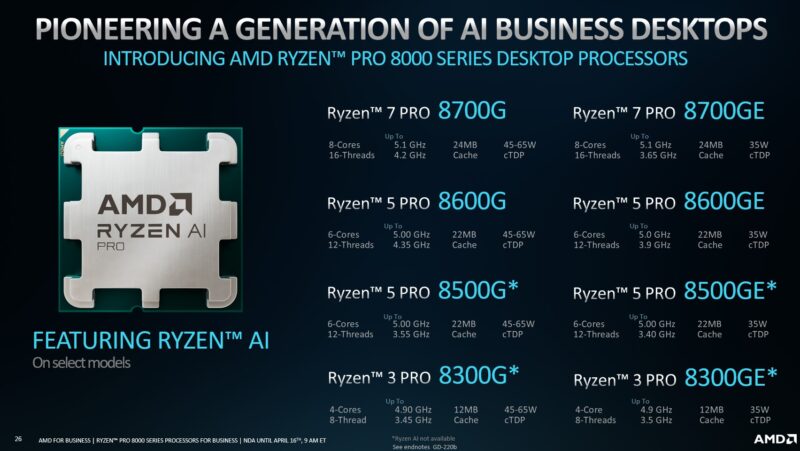
On the mobile side, we get more SKUs and only one that does not have the NPU. The AMD Ryzen Pro 8040 series has nine models and anywhere from 15-54W TDPs. It is a bit strange, but on average, the mobile SKUs have more cores and the Ryzen 9 can even have higher clocks than the desktop series, and they are more likely to have NPUs.
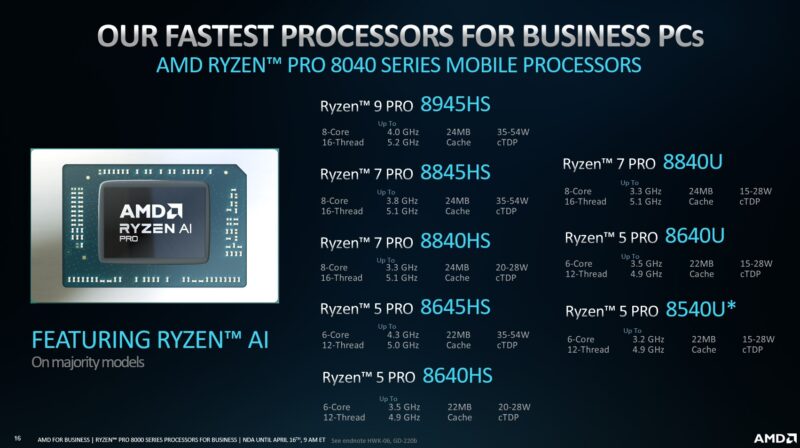
Since we have seen Zen 4 and RDNA 3 before, the NPU is probably the most interesting feature.
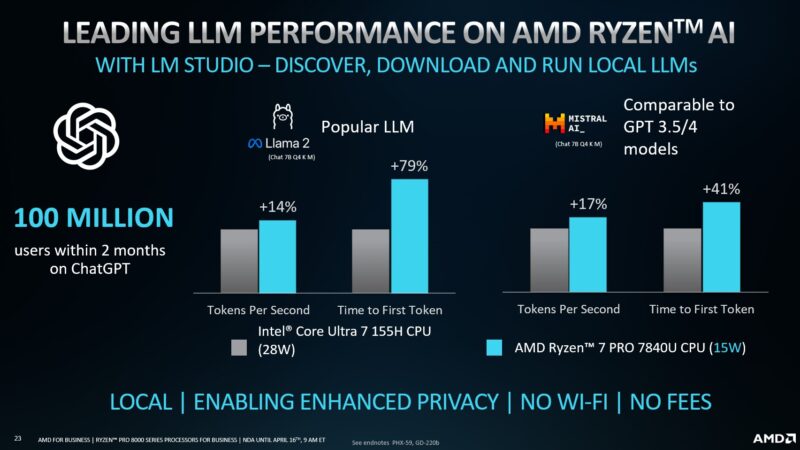
We are now seeing AMD with a competitive performance slide on AI inference versus Intel, albeit using a Ryzen Pro 7840U instead of the newer parts that were the topic of the launch.
Final Words
Something strange has happened in the market. AMD powered some of our favorite 1L PCs, without any doubt. At the same time, HP and Lenovo have seemed to notably cut back on promoting new AMD models. Dell was largely late to the AMD 1L PC market, but the HP and Lenovo boxes were very good. It almost feels like seeing that plus the mobile SKUs looking so much more attractive that AMD has de-emphasized the commercial desktop market below Threadripper, and instead focused on mobile parts.

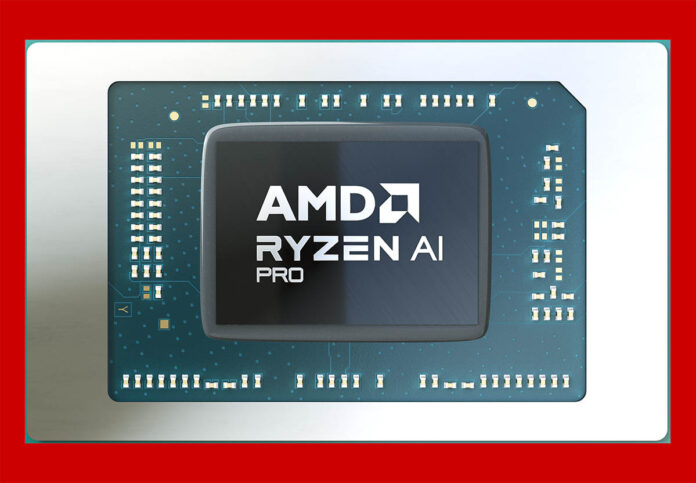

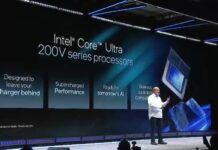
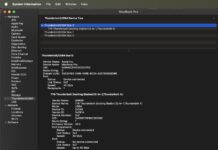
Did all the 8xxx series processors really drop support for system-level ECC memory? From a home server point of view ECC could be a more significant feature compared to a low-precision matrix unit used for neural network inference on the desktop.
When I look at the marketing pics, then I realize that AMD did make a blunder there on the AI performance. “Time to First Token” should me smaller to convince me to buy it, yet it is “+79%”, so almost 2x as slow as Intel competitor.
I don’t really care about the AI stuff I think it’s just a marketing gimmick and a signal to the stock market, what would the benefit be? You aren’t going to train a new model on your Desktop/Laptop and obviously most AI is proprietary behind some sort of cloud service.
There doesn’t seem to be a 16 core HX Series in the mobile lineup, I’d really like a high core count mobile workstation based on AMD without NVidia GPU (iffy Linux drivers and I don’t do anything GPU heavy).